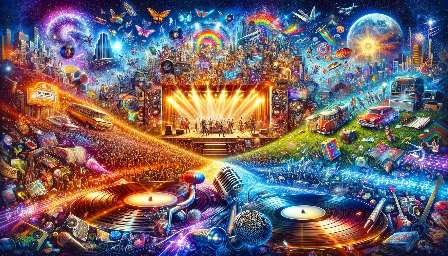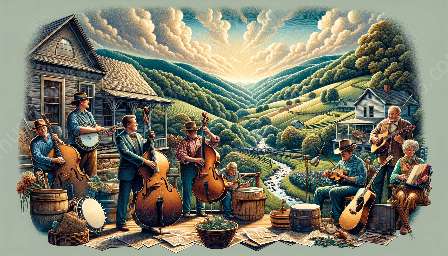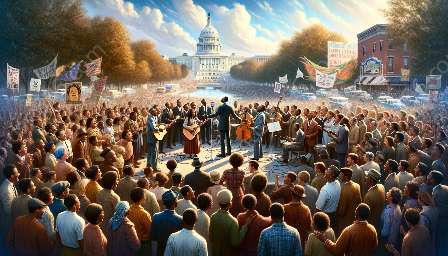Disco music has been a pivotal force in shaping the music industry, and understanding the dynamics of music marketing and promotion within this genre is crucial for success. In this topic cluster, we will delve into the history of disco music and its influence on the broader music landscape, while also exploring effective strategies for marketing and promoting disco music.
History of Disco Music
Disco music emerged in the 1970s, originating from urban nightlife scenes in New York and Philadelphia. It was heavily influenced by funk, soul, and salsa music, characterized by its upbeat tempo and danceable rhythms. The disco era marked a significant shift in music culture, with a focus on club-oriented sounds and a rise in popularity of dance-focused music. Artists and bands like Donna Summer, Bee Gees, and Gloria Gaynor became synonymous with the disco movement, crafting iconic hits that defined the era.
The success of disco music also led to the proliferation of discotheques and nightclubs where the music could be experienced firsthand. Its impact was not restricted to music alone, as it sparked a cultural phenomenon that influenced fashion, dancing styles, and even film and television. However, the disco era was not without its controversies, facing backlash and a subsequent decline in popularity by the late 1970s.
Influence on Music History
Despite its relatively short-lived mainstream dominance, disco music left a lasting impact on the music industry. Its fusion of diverse musical elements and emphasis on danceability paved the way for subsequent genres such as house, techno, and electronic dance music (EDM). The production techniques and innovative use of synthesizers in disco music laid the groundwork for advancements in music production, influencing a broad spectrum of contemporary music across various genres.
Marketing and Promotion in Disco Music
Understanding the Audience
Effective marketing and promotion in disco music begins with a deep understanding of the audience. This genre typically appeals to a diverse demographic, including enthusiasts of dance music, nostalgia seekers, and those drawn to the vibrant and celebratory nature of disco. Identifying key demographics and understanding their preferences and habits is essential for crafting targeted marketing campaigns.
Utilizing Visual and Aesthetic Elements
Visual imagery and aesthetic elements play a significant role in disco music marketing. Utilizing vibrant and colorful graphics, reminiscent of the disco era, can evoke nostalgia and capture the attention of the audience. Incorporating disco-inspired visual elements in promotional materials, such as album covers, posters, and online content, helps create a cohesive and immersive experience for fans.
Building a Strong Online Presence
In today's digital age, a robust online presence is central to effective music marketing and promotion. Establishing an engaging and interactive website or social media platforms dedicated to disco music can serve as a hub for connecting with fans, sharing content, and promoting upcoming events and releases. Leveraging social media channels, multimedia content, and live streaming to engage with the audience forms a crucial component of contemporary music promotion strategies.
Collaborating with Influencers and DJs
Partnering with influential DJs and social media influencers within the dance and disco music community can significantly amplify marketing efforts. DJs play a pivotal role in shaping musical trends and preferences within the dance music scene, making collaborations with them an effective means of reaching wider audiences. Similarly, influencers with a passion for disco music can lend authenticity to promotional endeavors and help expand the reach of marketing campaigns.
Live Performances and Events
Live performances and events are key opportunities for promoting disco music. Hosting themed disco nights, live performances, and club events creates immersive experiences for fans and serves as a platform for introducing new music and merchandise. These events not only generate excitement within the community but also provide avenues for direct engagement with the audience.
Conclusion
Disco music has exerted a profound influence on the music industry, paving the way for diverse musical genres and significantly impacting popular culture. Understanding the intricacies of marketing and promotion within the disco music landscape is essential for connecting with audiences and sustaining the legacy of this vibrant genre. By leveraging targeted strategies that resonate with the spirit of disco, music marketers can harness the enduring appeal of this genre and cultivate a loyal and engaged fan base.




































